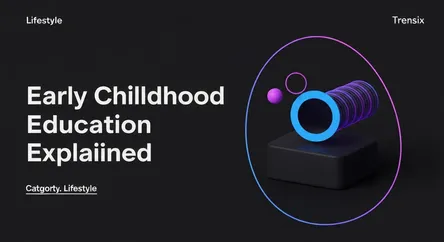Lifestyle
Early Childhood Education Explained

Discover why early childhood education is crucial. Learn how quality learning from birth to age eight shapes a child's future success and well-being.
What is it?
Early Childhood Education (ECE) refers to the teaching and care of a child in the period from birth to age eight. It encompasses a wide range of programs, including preschool, nursery school, kindergarten, and daycare. Rather than focusing solely on academics, ECE emphasizes holistic development through play-based learning. This approach nurtures a child's social, emotional, cognitive, and physical skills, establishing a strong foundation for lifelong learning and well-being.
Why is it trending?
There is a growing global recognition, backed by extensive neuroscience research, that the first few years of a child's life are critical for brain development. This understanding has propelled ECE into the spotlight, with policymakers and parents alike viewing it as a vital investment. Trends like universal preschool initiatives and a greater focus on social-emotional learning (SEL) highlight its rising importance. High-quality ECE is increasingly seen not as a luxury, but as a fundamental component of a modern education system.
How does it affect people?
For children, ECE provides significant advantages. It improves school readiness, boosts language and literacy skills, and enhances social competence. These benefits extend into adulthood, correlating with higher earning potential and better health outcomes. For society, widespread access to quality ECE helps close achievement gaps between different socioeconomic groups, reduces future crime rates, and builds a more capable and skilled workforce. It empowers parents, particularly mothers, to participate more fully in the labor market.